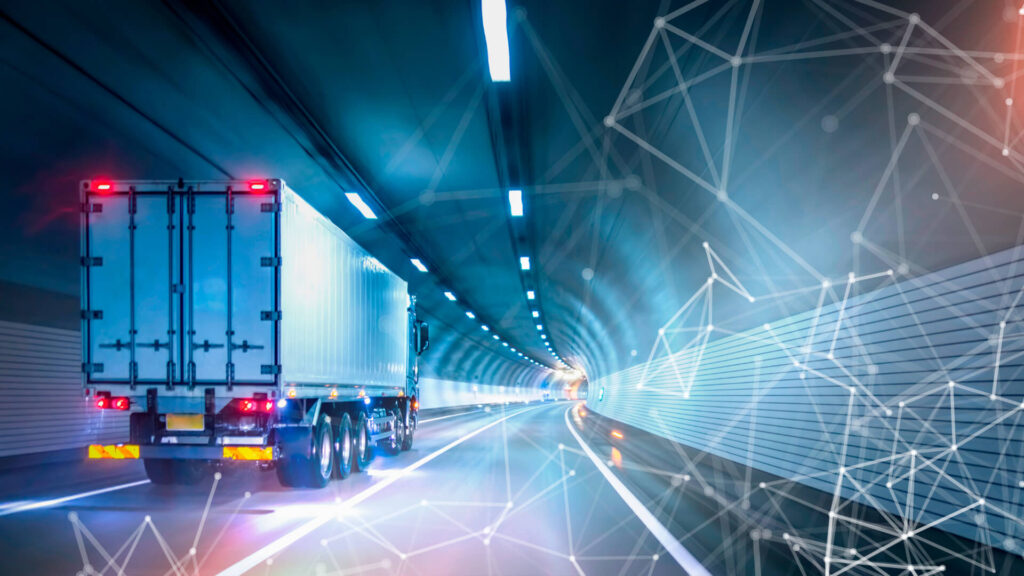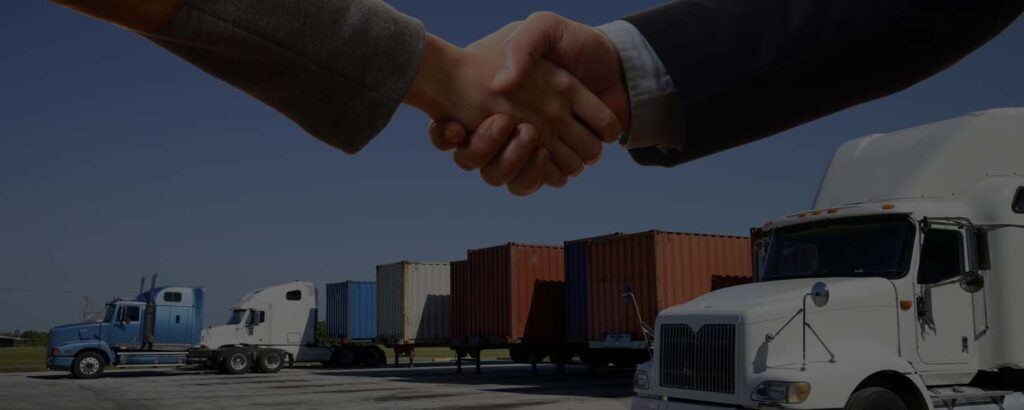The Digital Disruption in Logistics
In an age where speed, security, and transparency define success in logistics, blockchain technology is emerging as a potential game-changer. With its promise of decentralized, tamper-proof data and real-time visibility, blockchain has sparked serious interest in the shipping and freight industry. But is this buzz surrounding blockchain all talk, or is it truly the foundation for the future of secure shipping?
This article explores the intersection of blockchain and logistics — unpacking what it is, how it works, real-world applications, key benefits, and whether it’s just a passing trend or a transformative force.
What is Blockchain and How Does It Work in Logistics?
Defining Blockchain
At its core, blockchain is a decentralized digital ledger where transactions are recorded across multiple computers. These transactions are time-stamped and grouped in blocks, which are cryptographically secured and linked together in a chain.
Application in Logistics
In logistics, blockchain can be used to:
-
Track goods and shipments
-
Record transaction histories
-
Authenticate documents
-
Streamline customs processes
-
Facilitate smart contracts
Imagine a logistics system where every step of a shipment — from warehouse to delivery — is recorded transparently and immutably on a shared ledger. That’s the vision blockchain aims to deliver.
Why the Logistics Industry Needs Blockchain
1. Lack of Transparency
Traditional logistics systems involve multiple parties: shippers, carriers, customs, freight forwarders, etc. Each party maintains its own data, often in silos, leading to inconsistencies, delays, and mistrust.
Blockchain can unify data on a single ledger, accessible in real-time by all authorized stakeholders, creating trust and traceability.
2. Fraud and Document Forgery
In global shipping, forged documents and fraudulent activities cost the industry billions annually. Since blockchain records are tamper-proof, it drastically reduces opportunities for fraud.
3. Inefficient Paper-Based Systems
From bills of lading to customs declarations, paperwork slows down supply chains. Blockchain can digitize and automate documentation, saving time and operational costs.
4. Lack of Real-Time Tracking
Blockchain enables end-to-end visibility, integrating data from IoT sensors and GPS with shipment records, which enhances customer trust and allows proactive responses to delays or theft.
Benefits of Blockchain in Logistics
1. Improved Security
Each transaction on a blockchain is encrypted and time-stamped. Unauthorized changes are virtually impossible. This protects sensitive data from cyber-attacks and manipulation.
2. Traceability and Accountability
Blockchain logs every transaction across the supply chain, making it easy to trace the origin of goods, identify bottlenecks, and assign responsibility for delays or damages.
3. Smart Contracts
Smart contracts are self-executing agreements written in code. In logistics, these contracts can automate:
-
Payments upon delivery
-
Insurance claims
-
Customs clearance
This reduces manual intervention, speeds up operations, and lowers the risk of disputes.
4. Reduced Costs
By eliminating intermediaries, fraud, and paperwork, companies can significantly cut down operational costs. Auditing becomes easier and less expensive, and risk management improves.
5. Sustainability Tracking
Blockchain can verify the sustainability and ethical sourcing of products, helping companies meet environmental standards and build brand trust.
Real-World Examples of Blockchain in Logistics
1. Maersk and IBM’s TradeLens
TradeLens is a blockchain-based shipping platform developed by Maersk and IBM. It connects over 100 participants, including ports, carriers, and customs authorities. The platform:
-
Improves cargo visibility
-
Reduces paperwork
-
Accelerates customs clearance
Despite Maersk shutting down the platform in 2022 due to lack of global adoption, it served as a milestone in logistics innovation and showed what blockchain could achieve.
2. Walmart and Food Supply Chains
Walmart uses blockchain to track the journey of fresh produce and meat from farm to shelf. This allows:
-
Rapid identification of contamination sources
-
Better inventory management
-
Enhanced food safety compliance
3. FedEx and Shipment Tracking
FedEx has experimented with blockchain to manage chain-of-custody records for critical shipments. It enhances dispute resolution and ensures accurate delivery records.
Challenges and Limitations of Blockchain Adoption in Logistics
Despite its potential, blockchain faces several barriers in becoming a logistics standard.
1. Lack of Industry-Wide Standards
There’s no universal blockchain protocol for logistics. Companies use different platforms, making interoperability difficult.
2. Scalability Issues
Blockchain networks can become slow and expensive as transaction volumes grow. The logistics industry needs high-speed, high-volume systems, which blockchain may not yet fully support.
3. Regulatory Uncertainty
Global logistics spans across jurisdictions with varying data privacy laws. Blockchain’s immutable nature may conflict with regulations like GDPR, which require the ability to delete data.
4. High Implementation Costs
Developing and integrating blockchain into legacy logistics systems demands significant investment in both technology and training.
5. Resistance to Change
Many players in logistics are slow to adopt new technologies, especially small or traditional businesses that lack digital maturity.
Is Blockchain in Logistics Just Hype?
It’s easy to dismiss blockchain as overhyped, especially when pilot programs are shut down or adoption is slower than expected. However, the underlying value proposition remains strong.
Indicators That It’s Not Just Hype:
-
Increasing Investment: Startups and tech giants are investing heavily in logistics blockchain solutions.
-
Growing Partnerships: Logistics providers, freight brokers, and retailers are forming consortia to test blockchain networks.
-
Government Interest: Countries like Singapore and UAE are exploring blockchain for customs and port management.
Still, without broad adoption, standardized protocols, and clearer ROI, blockchain may remain a niche solution for now rather than a universal tool.
The Future Outlook: Blockchain’s Role in Modern Supply Chains
While the present adoption of blockchain in logistics is limited, its future potential remains vast — particularly in high-value, time-sensitive, and regulation-heavy supply chains such as:
-
Pharmaceuticals
-
Perishable goods
-
Aerospace
-
Defense logistics
In these industries, the benefits of security, traceability, and automation far outweigh the costs. As the technology matures and scalability improves, blockchain could become a foundational layer of digital logistics infrastructure.
How to Prepare Your Logistics Business for Blockchain
If you’re in the logistics business — whether as a freight forwarder, shipper, or 3PL — here are steps to get started:
1. Understand the Basics
Educate your teams on blockchain technology, smart contracts, and decentralized systems.
2. Start Small
Pilot blockchain in a limited use case such as document authentication, freight tracking, or customs clearance.
3. Choose the Right Partners
Work with technology providers or consortiums that offer robust, interoperable blockchain solutions.
4. Focus on ROI
Evaluate where blockchain provides tangible business value, not just technological innovation.
5. Stay Updated on Regulations
Ensure compliance with local and international laws related to data security and privacy.
Hype Today, Foundation Tomorrow?
So, is blockchain in logistics just hype or the future of secure shipping?
The answer lies somewhere in between. While current adoption is limited and challenges remain, the core features of blockchain align perfectly with logistics needs: transparency, trust, automation, and accountability.
The industry is evolving, and blockchain may not be the norm today, but as technology advances and global standards emerge, it will likely become a critical pillar of secure, smart, and efficient logistics in the future.




